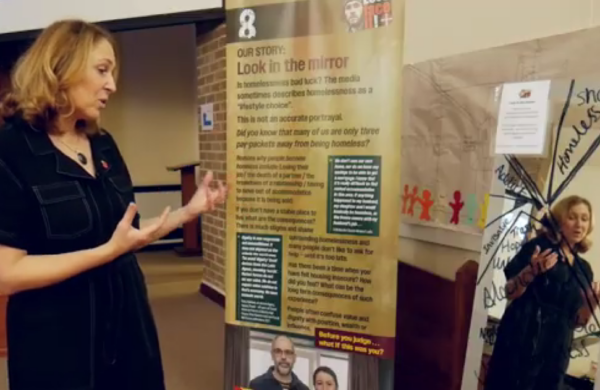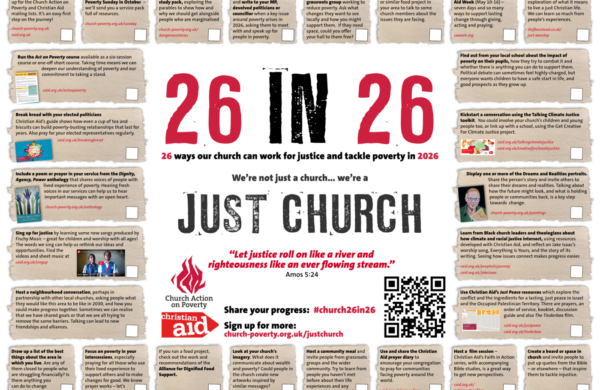Church on the Margins in the time of coronavirus
Reflections from our first online discussions on what it means to be church on the margins during the pandemic.
Opening reflection by Carmel Murphy Elliott, with an introduction by Church Action on Poverty director Niall Cooper
Personal
- Lots of people have been extremely busy for the last few weeks in the response, now feeling very tired, but settling down, new routines forming.
- Personal loss/bereavement
- Feelings of powerlessness
Reaching people
- Service-users (e.g. homeless) don’t know what’s going on, don’t have access to information.
- Concerns for people who are isolated alone.
- People with no tech or phones – where are the gaps/ how can we reach people? (e.g. refugees and asylum seekers, the elderly).
- Local community networks have suffered (again difficult to reach people who are not online).
- We need to think small, focus on helping our neighbours.
- Difficult decisions, e.g. closing foodbanks, running out of food. Others are still providing hot meals for homeless people.
- Marginalised people are still facing the worst of this, access to food, etc.
Reflection
- What will the ‘other side’ look like (when this is over)?
- Envisioning the future ‘another world is possible’. Change for society.
- Key workers (low-paid) are now incredibly valued.
Church
- Theology of death (and life) needs consideration/attention.
- More people are attending/taking part in online services than usual church numbers (it’s more accessible for people with internet).
- Challenges for clergy – funerals and managing their own mental health.
- Avoid ‘saviour syndrome’
- The need for theological reflection – now and beyond this.
- We need to continue to be creative and include people after this.

Research and Information Officer
How music and art helped churches grasp poverty
Art and music are great ways to bring people together for good – as The Let’s Face It! exhibition shows Churches in the South West …
Why Christians can’t keep out of politics
This spring, Church Action on Poverty will support a course looking at combining theology and politics. James Butler of the Church Mission Society sets out …
26 in 26: 200 churches register for social justice idea
Justice is integral to our faith. Church Action on Poverty and Christian Aid have teamed up to produce a new poster that your whole church …
Pilgrims call for more support in low-income neighbourhoods
Bob Rae reports on Sheffield Church Action on Poverty’s annual pilgrimage Anti-poverty campaigners in the Sheffield neighbourhoods of Firvale, Wincobank and Firth Park are calling for major improvement …
How should churches address rural poverty?
How is rural poverty changing, and how should churches, dioceses and Government respond? Paul Phillips explores the issue, and reports on his diocese’s work. In …
Faith In The City: why it still matters, 40 years on
In a new book, authors Terry Drummond and Joseph Forde revisit the landmark Faith In The City report, 40 years on. Faith in the City, …
How music and art helped churches grasp poverty
Art and music are great ways to bring people together for good – as The Let’s Face It! exhibition shows …
Why Christians can’t keep out of politics
This spring, Church Action on Poverty will support a course looking at combining theology and politics. James Butler of the …
26 in 26: 200 churches register for social justice idea
Justice is integral to our faith. Church Action on Poverty and Christian Aid have teamed up to produce a new …




Comments (01)
Comments are closed.